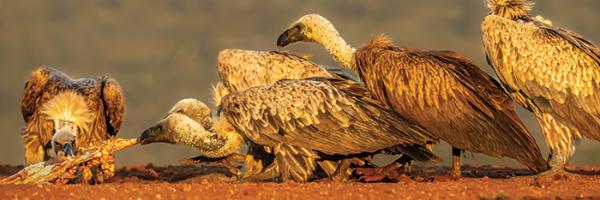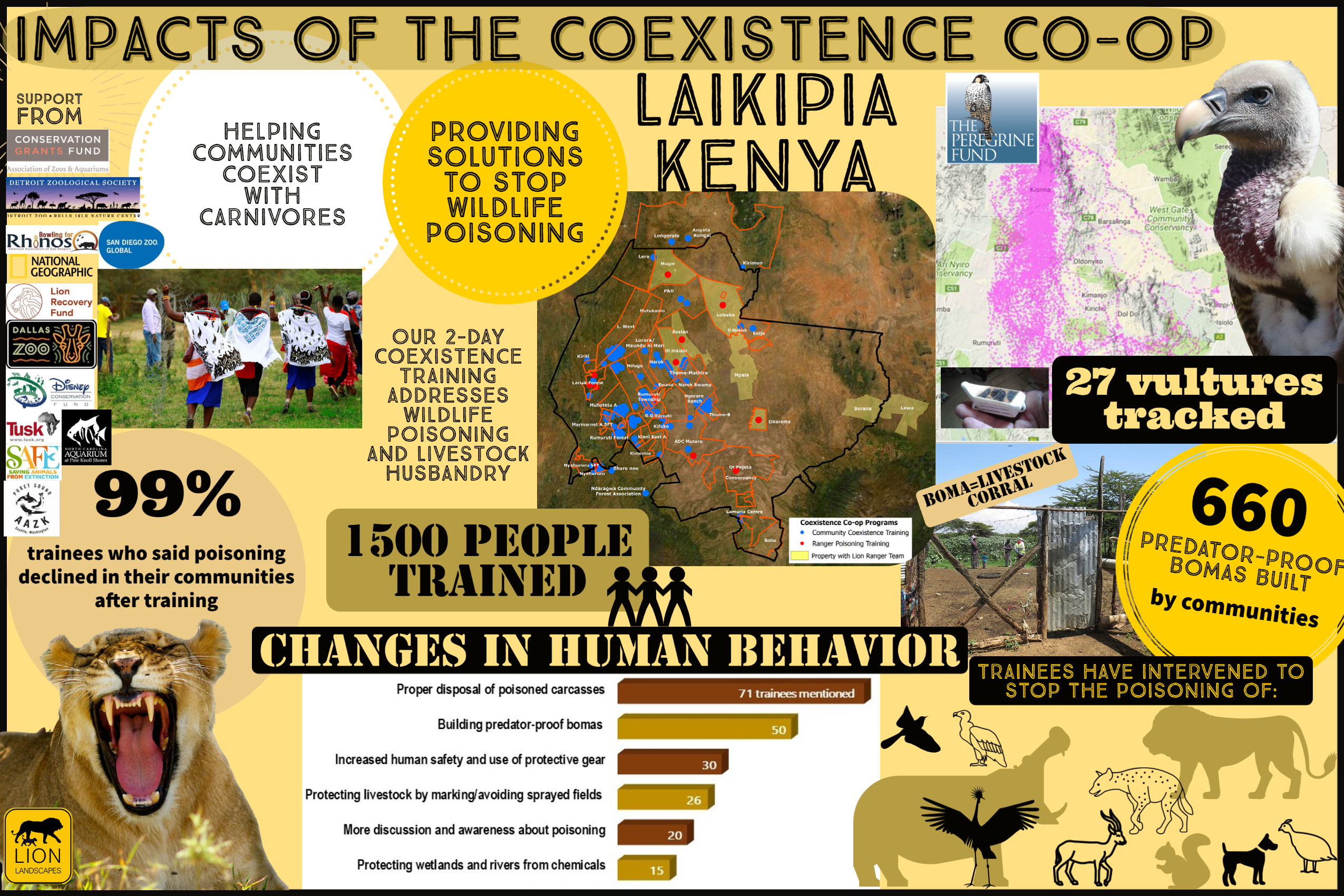Dany Chan
Our Assistant Director of Africa Programs, Dr. Darcy Ogada, recently sent us an update about the work accomplished in Northern Kenya during 2020. It was a trying year, but that didn't stop our team from working hard to conserve raptors and other wildlife in this incredible ecosystem.
Dear all,
What can we say about 2020? A year that’s ending nothing like it began! We sincerely hope that you all have managed to persevere during this challenging year and that better times lie ahead.
As for the Coexistence Co-op, our trainings were halted for 5 months and two poisonings occurred. We gradually restarted trainings in September, which was close to the time Kenya’s second wave of the virus began. During our initial regional lockdown we continued conducting phone-based evaluations of our training programme, responded to emergency conflict situations, and together with our partners Lion Landscapes, we attended an important meeting with the Kenya Wildlife Service about collaborative actions toward resolving predator conflict in Laikipia. As we close out 2020 things are picking up and the team trained 6 community groups and one ranger team over the past three weeks.
Like many others, we’ve also been busy catching up on writing scientific reports and papers. In collaboration with a number of authors, we recently submitted a manuscript for publication about raptor declines in Kenya over the past 40 years based on comparative road count surveys from the 1970s and the 2000s. While the situation for raptors isn’t good, we are hoping that once published, this study will ignite more raptor conservation efforts in Kenya. We are also working on an Africa-wide assessment of raptor populations and as part of this we were able to squeeze in a few raptor species for consideration for uplisting on the IUCN Red List. As a result IUCN has just announced the uplisting of Bateleur, Secretarybird and Martial Eagle, all to Endangered. We expect to submit additional species for consideration for uplisting in 2021. While this news isn’t good, it’s extremely important that these species are uplisted so that their large population declines are recognized and targeted conservation work can begin.
Finally, we realize it can be rather difficult to wrap your head around what exactly the impacts of our trainings are? A lot of conservation work involves ‘trainings’ these days and it’s not always apparent what, or even if, people are learning and what the longer-term impacts are. The graphic below hopefully better explains our impacts as measured through monthly evaluations of both our anti-poisoning and livestock husbandry trainings. I am particularly excited by the widespread effects of our poisoning trainings far beyond creating a better place for vultures. These trainings have led to improved conditions of human and livestock safety, as well as for rivers and wetlands, and for widely poisoned species like hyenas. The number of predator-proof bomas (livestock corrals) built by communities has reached 660 since mid-2018. This is extremely encouraging since we do not provide any subsidies or materials to offset building costs. The feedback we hear from those who have built these is also extremely encouraging. We also continue to tag and track vultures, and conduct aerial monitoring of breeding colonies, as funding allows.
In the future we expect our updates will include more work from our partners, Lion Landscapes, so stay tuned for more about how our novel partnership is starting to create change in Laikipia. We really want to acknowledge our crucial project supporters, a number of whom have stepped up during this challenging year: Lion Recovery Fund, AZA, Detroit Zoological Society, National Geographic, Tusk Trust, AZA Vulture SAFE, Disney, Dallas Zoo, San Diego Zoo, North Carolina Aquarium at Pine Knoll Shores, Natural Encounters Conservation Fund, Puget Sound Chapter of AAZK, and Bowling for Rhinos. We encourage your continued support in 2021 as we continue to try and overcome the challenges faced during 2020 in addition to recently receiving a number of urgent calls for help from communities in far flung areas of Wajir and the North Coast who we are keen to help with controlling ongoing conflict and poisonings as soon we can raise funds to reach these areas.
On behalf of The Peregrine Fund’s Africa Program and our Coexistence Co-op Team, we wish you all Happy Holidays and a good start to 2021!
Cheers, Darcy







